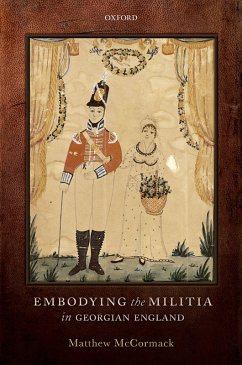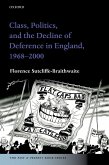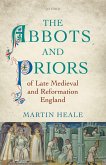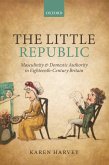The militia was a key institution in Georgian England, and arguably one that was very characteristic of its age. A 'militia' is an informal military organisation made up of part-time civilians rather than professionals. As an island, Britain had historically relied on forces of this type for home defence, but threats of a French invasion during the Seven Years War (1756-63) highlighted that the militia had fallen into disrepair and prompted calls for its revival. In this important new study, Matthew McCormack re-examines the debates on the militia, and argues that this military reform was informed and driven by concerns about politics, nationalism, and gender. The militia tells us a great deal about the political culture of the eighteenth century, which was suspicious of professional armies and executive power, and which placed great emphasis on the liberties and masculine attributes of the ordinary citizen. Its advocates even suggested that mass military service would prompt a reinvigoration of English masculinity. The Militia Act passed into law in 1757. From this date until the New Militia's slow demise after the Napoleonic Wars, Embodying the Militia in Georgian England considers civilian men's experience of military service. How was the militia 'embodied' - both in the contemporary sense of assembling for service, and also as a gendered bodily experience? Chapters explore questions such as physical training, masculine honour, material culture, self-identity, and citizenship. As such, the volume's interdisciplinary approaches offer new perspectives on the history of war.
Dieser Download kann aus rechtlichen Gründen nur mit Rechnungsadresse in A, B, BG, CY, CZ, D, DK, EW, E, FIN, F, GR, HR, H, IRL, I, LT, L, LR, M, NL, PL, P, R, S, SLO, SK ausgeliefert werden.
Hinweis: Dieser Artikel kann nur an eine deutsche Lieferadresse ausgeliefert werden.









